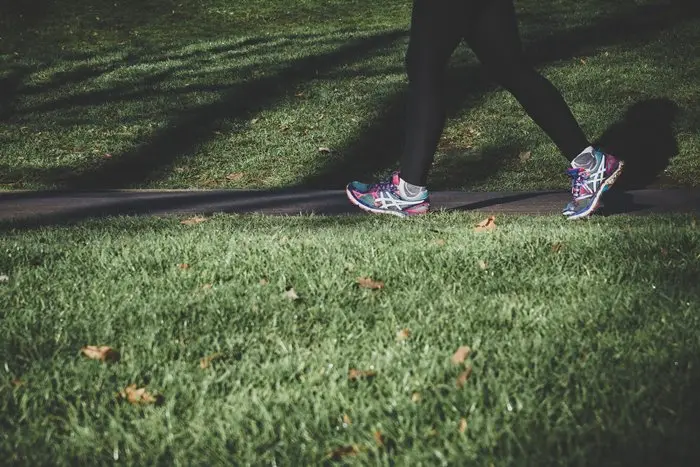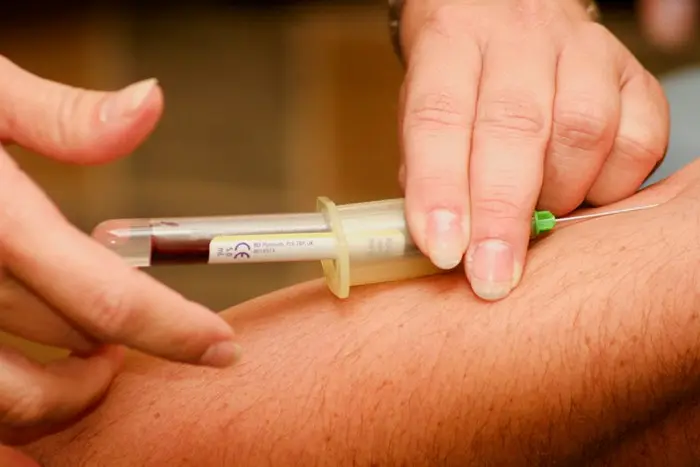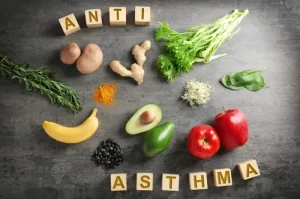Cholesterol is a waxy, fat-like substance that’s found in all the cells in your body. It’s essential for making hormones, vitamin D, and substances that help you digest foods.
Your body needs cholesterol to perform these crucial functions, but having too much cholesterol in your blood can be problematic. High levels of cholesterol can increase the risk of heart disease, which remains one of the leading causes of death globally.
Understanding cholesterol, its types, and its impact on your health is critical. It’s a balancing act: while your body needs some cholesterol, too much of it can clog your arteries and lead to heart-related issues.
Understanding Cholesterol
Good vs. Bad Cholesterol
Cholesterol travels through your bloodstream in small packages called lipoproteins, which are made of fat (lipid) on the inside and proteins on the outside. There are two types of lipoproteins that carry cholesterol throughout your body:
- LDL (low-density lipoprotein), often termed as ‘bad’ cholesterol, makes up most of your body’s cholesterol. High levels of LDL cholesterol raise your risk for heart disease and stroke.
- HDL (high-density lipoprotein), or ‘good’ cholesterol, absorbs cholesterol and carries it back to the liver, which flushes it from the body. High levels of HDL cholesterol can lower your risk for heart disease and stroke.
Balancing these two types is essential for maintaining heart health and reducing the risk of cardiovascular diseases.
Effects of High Cholesterol
When you have high cholesterol, you may develop fatty deposits in your blood vessels. Eventually, these deposits grow, making it difficult for enough blood to flow through your arteries. Sometimes, these deposits can break suddenly and form a clot that causes a heart attack or stroke.
High cholesterol can be inherited, but it’s often the result of unhealthy lifestyle choices, making it preventable and treatable. A healthy diet, regular exercise, and sometimes medication can help reduce high cholesterol.
Natural Ways to Lower Cholesterol
Focusing on lifestyle changes can significantly impact cholesterol levels. Let’s dive into ten natural methods.
1. Incorporate Fiber-Rich Foods
Diet plays a pivotal role in managing cholesterol levels, and incorporating fiber-rich foods is a key strategy. There are two types of fiber: soluble and insoluble. Soluble fiber, in particular, can help lower cholesterol levels.
How Soluble Fiber Lowers Cholesterol
Soluble fiber dissolves in water to form a gel-like substance. It helps lower cholesterol by reducing the absorption of cholesterol into your bloodstream.
As it travels through your digestive system, soluble fiber binds with cholesterol particles and takes them out of the body before they can circulate. This process naturally reduces the amount of cholesterol your body has to deal with.
Sources of Soluble Fiber
To increase your intake of soluble fiber, include foods such as:
- Oats and oat bran
- Barley and other whole grains
- Beans and legumes
- Apples, citrus fruits, and pears
- Psyllium husk, often found in fiber supplements
Aiming for 5 to 10 grams or more of soluble fiber a day can decrease your LDL cholesterol. Remember, adding fiber to your diet gradually can help prevent gastrointestinal discomfort.
2. Include Omega-3 Fatty Acids
Omega-3 fatty acids are a type of unsaturated fat that is particularly beneficial for heart health. Unlike saturated fats, which can increase LDL cholesterol, omega-3s do not affect LDL cholesterol levels. Instead, they offer several heart-healthy benefits.
Benefits of Omega-3 Fatty Acids
Omega-3 fatty acids are known for their role in:
- Reducing triglycerides, a type of fat found in your blood
- Lowering blood pressure slightly
- Reducing the risk of developing blood clots
- Decreasing the risk of strokes and heart failure
- Reducing irregular heartbeats
Sources of Omega-3 Fatty Acids
You can find omega-3 fatty acids in:
- Fatty fish such as salmon, mackerel, herring, sardines, and albacore tuna
- Flaxseeds and flaxseed oil
- Walnuts
- Canola oil
- Chia seeds
Incorporating these foods into your diet can contribute to a balanced diet rich in heart-healthy nutrients. If you’re considering omega-3 supplements, it’s advisable to consult with a healthcare professional, as they can interact with certain medications.
3. Reduce Saturated Fats
One effective way to lower your cholesterol is to reduce the amount of saturated fat in your diet. Saturated fats, found primarily in animal products and certain oils, can raise your total cholesterol and tip the balance toward more harmful LDL cholesterol.
How Saturated Fats Affect Cholesterol
Saturated fats raise levels of LDL cholesterol in your blood. High levels of LDL cholesterol increase your risk of heart disease and stroke. Reducing saturated fat intake can help improve your cholesterol profile.
Sources of Saturated Fats
Common sources of saturated fats include:
- Red meat
- Full-fat dairy products like milk, cheese, and cream
- Butter
- Coconut and palm oils
Replacing Saturated Fats
Instead of saturated fats, opt for healthier fats, like those found in olive oil, nuts, and avocados. Also, consider lean protein sources such as poultry, fish, and plant-based alternatives.
4. Add Plant Sterols and Stanols
Plant sterols and stanols are substances naturally found in plants that can help lower cholesterol. They work by blocking the absorption of cholesterol in the digestive tract, which can lead to lower LDL cholesterol levels.
Sources of Plant Sterols and Stanols
You can find plant sterols and stanols in:
- Margarines and spreads fortified with sterols or stanols
- Certain vegetable oils
- Whole grains
- Nuts and seeds
Some products are specifically designed with added sterols and stanols to help people lower their cholesterol levels.
5. Increase Physical Activity

Engaging in regular physical activity is another excellent way to improve your cholesterol profile. Exercise can help raise HDL cholesterol, the “good” cholesterol, while lowering LDL cholesterol and triglycerides.
Types of Exercise for Cholesterol
- Aerobic exercises, like walking, running, or cycling
- Strength training, like lifting weights
- Flexibility exercises, such as yoga
Aim for at least 150 minutes of moderate-intensity aerobic activity or 75 minutes of vigorous aerobic activity each week, along with muscle-strengthening activities on two or more days a week.
6. Quit Smoking
Quitting smoking can have a positive impact on your cholesterol levels and overall heart health. Smoking lowers HDL cholesterol and increases the risk of developing heart disease.
Benefits of Quitting Smoking
- Increases HDL cholesterol levels
- Improves blood circulation
- Reduces the risk of heart disease and lung cancer
7. Limit Alcohol Consumption
Drinking alcohol in moderation can potentially have some health benefits, including raising HDL cholesterol levels. However, excessive alcohol intake can lead to serious health problems, including high blood pressure, heart failure, and strokes.
Guidelines for Alcohol Consumption
- For men, limit to two drinks per day
- For women, limit to one drink per day
Choosing to adopt these lifestyle changes can significantly impact your cholesterol levels and overall heart health. Remember, it’s always recommended to consult with a healthcare professional before making significant changes to your diet or exercise routine, especially if you have existing health conditions.
8. Use Healthier Fats
Switching to healthier fats is an effective strategy in managing cholesterol levels. While fats are essential for certain bodily functions, the type of fat you consume makes a significant difference to your heart health.
Types of Healthier Fats
- Monounsaturated Fats: These are found in olive oil, avocados, and certain nuts like almonds and peanuts. They can help reduce bad LDL cholesterol levels while maintaining good HDL cholesterol.
- Polyunsaturated Fats: Found in sunflower, corn, soybean oils, and fatty fish like salmon and trout, these fats can also help lower LDL cholesterol. Omega-3 fatty acids, a type of polyunsaturated fat, are especially beneficial for heart health.
Replacing Unhealthy Fats
Substitute butter and margarine with olive oil or avocado spread. Choose lean cuts of meat and opt for grilling or baking over frying.
9. Stay Hydrated
Hydration plays a crucial role in maintaining overall health, and it indirectly impacts cholesterol levels by aiding bodily functions.
Importance of Water in Cholesterol Management
- Aids Metabolism: Proper hydration is essential for metabolic processes, including the processing of cholesterol.
- Helps Digestion: Water helps in the digestion of food and absorption of nutrients, which can influence cholesterol levels.
Tips for Staying Hydrated
- Aim for at least 8 glasses of water a day.
- Include water-rich fruits and vegetables in your diet.
- Carry a water bottle to remind yourself to drink regularly.
10. Manage Stress
Chronic stress can negatively impact your heart health and cholesterol levels. Managing stress effectively is therefore an important aspect of a heart-healthy lifestyle.
Impact of Stress on Cholesterol
Stress hormones can trigger a chain of events that result in the production of more energy in the form of fatty acids and glucose, which can lead to an increase in cholesterol production.
Stress Management Techniques
- Mindfulness and Meditation: Practices like yoga and meditation can help reduce stress.
- Regular Exercise: Physical activity is an excellent stress reliever.
- Adequate Sleep: Ensure you get enough sleep, as lack of sleep can exacerbate stress.
Monitoring Your Progress
Regularly monitoring your cholesterol levels and overall health is vital in managing and reducing your cholesterol.
Keeping Track
Regular Health Check-ups: Get your cholesterol levels checked regularly as recommended by your healthcare provider.
Lifestyle Diary: Keep a diary of your diet and exercise habits to track your progress and make necessary adjustments.
Conclusion
Lowering cholesterol naturally is a multifaceted approach that requires a combination of dietary changes, physical activity, and lifestyle adjustments. Incorporating healthier fats, staying hydrated, managing stress, and regular monitoring are all critical steps.
Remember, each small change you make adds up to a significant impact on your cholesterol levels and overall heart health. Adopting these habits can lead you towards a healthier, more balanced life.
With dedication and the right strategies, it’s possible to manage cholesterol levels effectively and reduce the risk of heart-related issues. Always consult with a healthcare professional for personalized advice and regular check-ups.
FAQs
Can diet alone lower cholesterol?
Yes, diet plays a significant role, but combining it with other lifestyle changes is more effective.
How quickly can cholesterol levels change?
Significant changes can be seen within weeks to months of lifestyle adjustments.
Is cholesterol only a concern for older adults?
No, individuals of any age can have high cholesterol.
Can high cholesterol be genetic?
Yes, familial hypercholesterolemia is a genetic condition affecting cholesterol levels.
Are there any symptoms of high cholesterol?
High cholesterol itself does not cause symptoms; regular testing is important.




